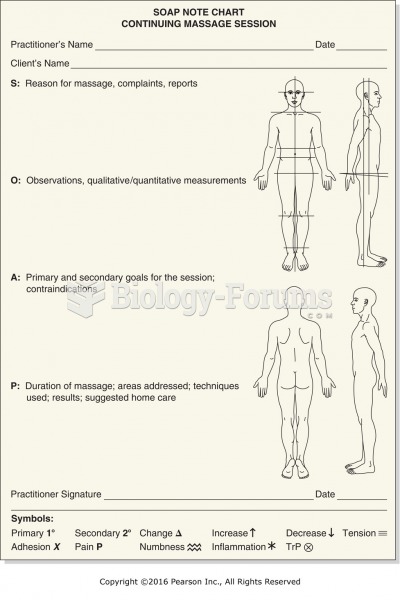|
|
|
When blood is exposed to air, it clots. Heparin allows the blood to come in direct contact with air without clotting.
Your chance of developing a kidney stone is 1 in 10. In recent years, approximately 3.7 million people in the United States were diagnosed with a kidney disease.
Always store hazardous household chemicals in their original containers out of reach of children. These include bleach, paint, strippers and products containing turpentine, garden chemicals, oven cleaners, fondue fuels, nail polish, and nail polish remover.
Studies show that systolic blood pressure can be significantly lowered by taking statins. In fact, the higher the patient's baseline blood pressure, the greater the effect of statins on his or her blood pressure.
Each year in the United States, there are approximately six million pregnancies. This means that at any one time, about 4% of women in the United States are pregnant.
 The anterior pituitary is sometimes called the master gland because it secretes many hormones that r
The anterior pituitary is sometimes called the master gland because it secretes many hormones that r
 Body cavities. (A) Lateral view of a sagittal section through the body. (B) Anterior view of a front
Body cavities. (A) Lateral view of a sagittal section through the body. (B) Anterior view of a front





